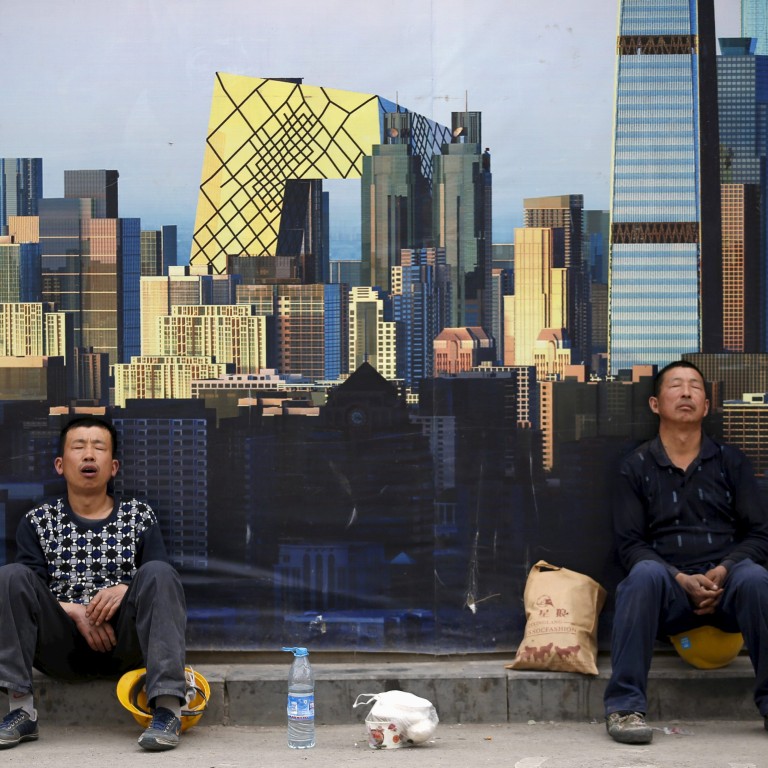
BRICS economies hit a wall as China stamps authority on group
If there is one lesson ... it’s that investors should be wary of catchy labels and acronyms and instead judge each country on its own merits
On Monday, India’s government named K.V. Kamath, one of the country’s corporate chieftains who is renowned for his consistently bullish views about India’s economy, as head of the Shanghai-based New Development Bank, the so-called BRICS Development Bank of the large emerging market (EM) economies of Brazil, Russia, India, China and South Africa.
Formally established at the 6th BRICS summit in Brazil last July, the bank - set up as a counterweight to the dominance of the two main western-led multilateral institutions, the World Bank and the International Monetary Fund (IMF) - shows the extent to which the BRICS investment concept, coined and developed by Goldman Sachs in 2001, proved to be more than just a catchy label.
Dozens of BRICS-focused investment funds have been created over the past decade as vehicles for investors to gain exposure to a group of countries that account for more than 40 per cent of the world’s population and over a quarter of global GDP.
Yet Kamath takes the reins of the New Development Bank at a time when most of its stakeholders are distinctly out of favour with investors.
The Russian and Brazilian economies are expected to contract 4 per cent and 1 per cent respectively this year, according to the IMF, compared with growth rates of 8.5 per cent and 6 per cent just before the global financial crisis struck, when the BRIC economies (South Africa was still not a member then) were all the rage among investors.
Both countries have been hit hard by the downturn in commodity prices and have their own country-specific problems. While Russia is suffering from the effects of a much tougher sanctions regime imposed by Western governments as punishment for its intervention in Ukraine, Brazil is coping with the fallout from a high-profile corruption scandal at Petrobras, the state-run oil company, which has severely undermined the authority of president Dilma Rousseff.
Russia, moreover, has already been stripped of its investment grade status, while Brazil is dangerously close to being “junked”.
As for South Africa, which is expected to grow by a paltry 2 per cent this year, a debilitating crisis at Eskom, the state-owned electricity company, has led to blackouts, crimping the country’s growth rate further.
Even India’s appeal among investors is starting to wane.
Having surged 12 per cent over the past year because of the enthusiasm generated by the victory of the charismatic Narendra Modi in last year’s parliamentary election, Indian equities have fallen 8 per cent this year. Even the resilient rupee is down 3 per cent against the dollar since mid-April.
Most worryingly, India’s “reform story” is less promising. On Tuesday, the government failed to push legislation to introduce a goods and services tax (GST) through parliament.
China, meanwhile, although still growing briskly by EM standards, is expanding at its slowest pace since the height of the global financial crisis amid mounting concerns about the government’s ability to reduce the economy’s over reliance on investment in favour of private consumption.
Yet many of the countries identified by Goldman Sachs as the “next BRICS”, the so-called “Next 11”, have their own fair share of problems.
Two of them, Nigeria and Turkey, have suffered sharp declines in their currencies - the former because of low oil prices and the latter because of heightened political risk and a loss of credibility in monetary policy.
Indeed while returns on EM equities are still in positive territory over the past year, the stocks of frontier markets (FMs) - which account for the bulk of the Next 11 - have fallen 10.5 per cent. Brazilian and Russian shares, however, have performed even worse.
If there is one lesson from the performance of both EM and FM assets, it’s that investors should be wary of catchy labels and acronyms and instead judge each country on its own merits.
Still, the BRICS investment concept has benefited China.
In China’s eyes, the rationale behind the creation of the New Development Bank - challenging the under-representation of EMs in post-1945 Bretton Woods financial institutions - was a useful springboard for establishing its main global economic governance initiative, the Asia Infrastructure Investment Bank (AIIB) - essentially China’s answer to the World Bank.
Not only are the other BRICS economies founding members of the AIIB, but many European countries, including the UK, have joined the bank, much to the annoyance of the US which perceives the institution as a tool of Chinese foreign policy.
While most of the BRICS economies have hit a wall, China has stamped its authority on the club.
Nicholas Spiro is managing director of Spiro Sovereign Strategy

